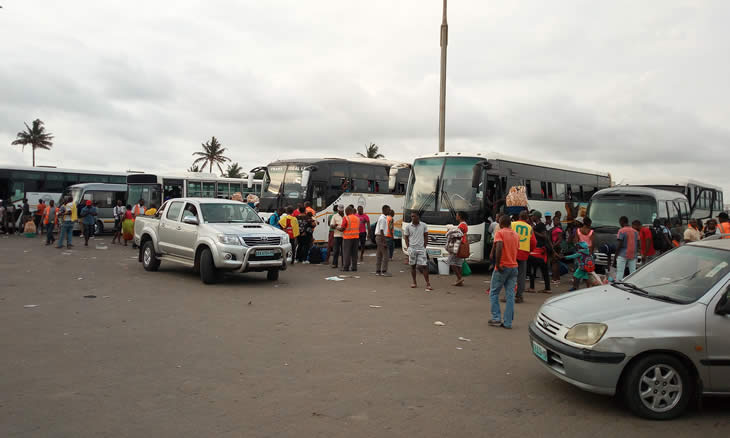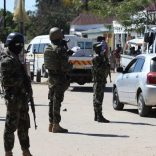Mozambique: Son arrested for trying to deliver cannabis-filled samosas to father in prison
The collector who prays 50 times to avoid bullets in central Mozambique

Maputo's 'Junta' bus terminal. [Photo: Lusa]
A ticket collector working on a passenger transport on the route between Maputo and Tete has a strategy for protecting himself from the attacks that have blown up in central Mozambique since August: praying 50 times.
He tells Lusa anonymously that before travelling, he makes sure to “say 50 prayers”, and even so he travels “with his heart in his hands”, knowing that he will pass through the area where the provinces of Sofala and Manica meet and where armed groups have returned to the practice of firing indiscriminately on vehicles.
The violence takes place in the middle of the 1,500 kilometre road that separates the capital of the country from Tete.
According to the ticket collector, there are fewer and fewer passengers, and some carriers have already suspended services.
But, next door at the Junta terminal in Maputo, 42-year-old Armando Munguambe is still punching tickets on the route. Passenger transportation has been his only way to “put food on the table” for 15 years, he says, but today, as at times before, more than for his livelihood, he fears for his life.
It has never been an easy route and there have always been dangers, but nothing like the current fear of being ambushed.
It is a repetition of the past in an area which is a stronghold of Mozambican National Resistance (Renamo) guerrillas, where there were always clashes with the armed forces, but which were thought to have been remedied.
“They said there was going to be peace, but we don’t see any peace, because we, who are on the road, run a great risk of being shot. They don’t pick which vehicle to hit,” Armando Munguambe observes.
There are attacks on both civilian and police vehicles, and eight deaths have been reported, including two police officers, one killed in an attack on a police station.
“I was lucky,” Munguambe comments, recalling how, five years ago, he regularly had to transit the area as part of a group of vehicles protected by military escorts. “They never attacked the convoys I was in.”
These ticket collectors and other transportation company workers say that passenger numbers at the terminal in Maputo have been declining in recent weeks because of the attacks, and because a considerable number of buses need to pass through the conflict region to reach the interior and northern provinces of Mozambique.
Cruz, a driver who also works on the Maputo-Tete route, has a 49-seater bus and usually leaves the Maputo terminal with about 30 people, but now the number is considerably lower.
“I leave here with 10 passengers, maximum. I pick up the rest along the way,” he tells Lusa.
The scenario repeats itself in the opposite direction. The last time he returned from Tete he had more parcels than passengers.
In conversation with Lusa, he says that “a lot of people are scared”, so “few travel”. Those who still do are traders and depend on travel to survive.
“I am enduring [the loss] because it is my job. I have often thought of not going there, but I have no choice. I have a family and a home to support, and without work it is difficult,” the transport professional says.
The Mozambican General Police Command on Wednesday accused the guerrillas of the Mozambican National Resistance (Renamo) of being the perpetrators of the attacks, without acknowledging recent internal divisions within the largest opposition party, especially the splitting off of dissidents led by Mariano Nhongo.
Within Renamo, both Nhongo and leader Momade have distanced themselves from the attacks.
Elections held in Mozambique this month gave a landslide victory to the governing party, the Mozambique Liberation Front (Frelimo).
The central part of Mozambique is traditionally the scene of vigorous military deployment, and these attacks are a repetition of what happened five years ago, also after elections whose results were not favourable to Renamo.












Leave a Reply
Be the First to Comment!
You must be logged in to post a comment.
You must be logged in to post a comment.